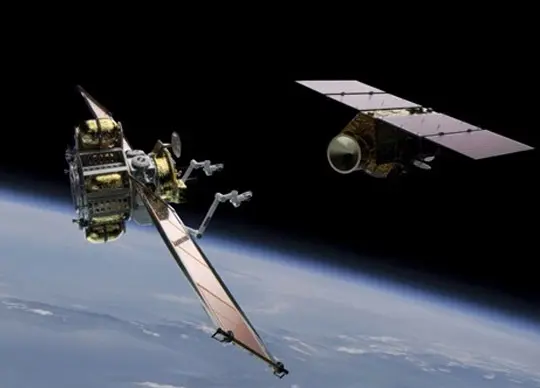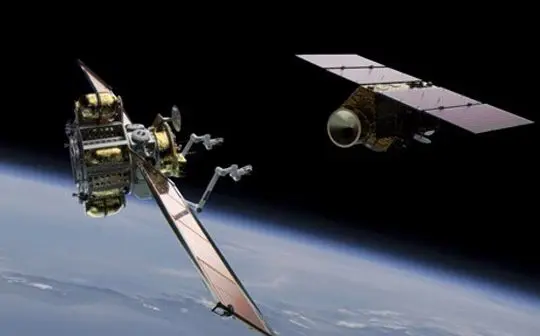
SmartSat Cooperative Research Centre (SmartSat) says it is backing innovative research to develop end-to-end Australian capabilities in In-orbit Servicing, Assembly, and Manufacturing (ISAM), in a project underwritten by a total investment of $2.3million.
The new project, developing robotic satellite technologies to reliably connect with other satellites to perform in-orbit repairs and maintenance, will be led by SmartSat research partner, the University of Sydney, and supported by NSW-based industry partners Abyss Solutions, ANT61, Space Machines Company, Sperospace and Spiral Blue.
Servicing satellites in orbit is challenging due to harsh space conditions, potential risk of damaging expensive assets through collision during docking, and difficulties maintaining stability during maintenance.
This project will address the gaps between autonomous robotic systems and the requirements of real-time, reliable close proximity operations. Uniquely, the project will bring all four key technology areas into one research project, ensuring an end-to-end approach to addressing these complex challenges.
The ISAM project will address these four areas of research:
- High-level, AI-driven on-board automation for mission operations, ensuring real-time performance of the servicing system in harsh space conditions
- Advanced sensing for precise far-field object detection and relative close-proximity navigation in challenging in-orbit lighting
- Fault-tolerant relative navigation system for accurate detection and tracking, despite variable lighting conditions, textureless background and small relative size of objects, in space with limited hardware and computational resources
- Safe control strategy for reactionless control when the robotic arms are in motion to stabilise the servicing satellite while the robotic manipulator is in operation, avoiding damage to both spacecraft
SmartSat CRC Chief Executive Officer Professor Andy Koronios said research into ISAM technologies is critical for Australia to help our local industry join the emerging global supply chain in this increasingly important field.
“With the number of satellites and spacecraft in orbit increasing rapidly, there’s a greater likelihood of malfunctions and collisions. Being able to service and upgrade satellites in-situ, thereby extending their lifespans, will be a crucial capability for governments and the private sector alike. This project will develop key autonomy technologies needed by the Australian space industry to be competitive in the global ISAM business.”
The collective goal is to build and demonstrate on-ground an end-to-end software stack for these four advanced autonomy technologies into a single working code repository suitable for deployment onto future satellites.
Industry partners involved in the project will work closely with the University of Sydney to integrate their technologies and demonstrate the feasibility of a future all-Australian satellite servicing mission.
Specialised in AI-based perception, Abyss Solutions focuses on autonomous inspections in challenging energy and marine environments, such as off-shore oil rigs; ANT61 excels in semi-autonomous control of dexterous robotic systems; Space Machines in spacecraft transportation and servicing; Sperospace in cold welding and large robotic manipulators; and Spiral Blue specialises in edge computing hardware and application management software.
Dr Xiaofeng Wu, Senior Lecturer in Space Engineering at the University of Sydney, said developing foundational Australian ISAM capabilities will help meet Australia’s future sovereign needs and equip local companies with unique technologies, providing them with advantages in the global ISAM and broader space industry.
“Australia needs to start laying the groundwork now to compete in this vital and emerging US$14.3 billion market. The University of Sydney is ideally positioned to play a leading role in establishing the country’s first integrated set of core capabilities for autonomous orbital robotics. This core capability set will enable Australian industry to undertake advanced, fit-for-purpose, autonomous robotic satellite missions to meet commercial, civil and defence needs.”
Image: Attributed to Space Machines Company.





